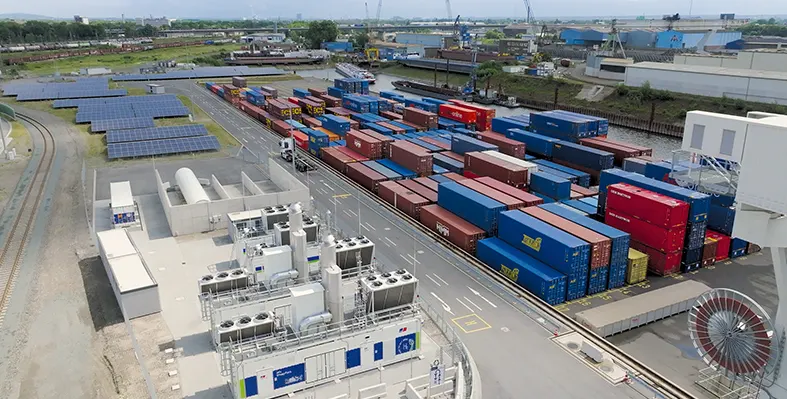The Emirates Nuclear Energy Company (ENEC) has signed a new fuel supply agreement with Framatome for the provision of nuclear fuel assemblies and engineering services for the Barakah Nuclear Energy Plant in the United Arab Emirates.
This agreement represents a major step in ENEC’s long-term strategy to diversify its nuclear fuel supply chain. It aims to reinforce the UAE’s energy security by maintaining a continuous supply of carbon-free electricity to businesses, industries, and households across the country.
Under the terms of the agreement, Framatome will provide fully fabricated nuclear fuel assemblies for the Barakah plant. With decades of expertise in nuclear fuel manufacturing, Framatome is seen as a strategic partner in supporting the resilience and flexibility of ENEC’s fuel supply operations, ensuring reliable performance and safety for the Barakah reactors.
The fuel assemblies will be manufactured at Framatome’s fabrication facility in the United States, which is licensed by the U.S. Nuclear Regulatory Commission (NRC). The facility has consistently earned the highest rating from the NRC’s Licensee Performance Review (LPR) for the past 18 years. Framatome also brings over four decades of experience in producing fuel for Combustion Engineering reactor designs like those used at Barakah and has supplied more than 6,000 such assemblies.
Supporting regional growth
The Barakah Nuclear Energy Plant is the first multi-unit nuclear facility in the region and a global example of a successful nuclear new-build programme. Developed by ENEC, the plant consists of four APR-1400 reactors and stands as the region’s largest clean electricity source. As ENEC looks ahead, it continues to explore strategic partnerships that support the growth of the international civil nuclear sector and ensure Barakah remains central to the UAE’s clean energy ambitions.
His Excellency Mohamed Al Hammadi, managing director and CEO of ENEC, said, “Our agreement with Framatome advances our strategy to strengthen the security and reliability of our nuclear fuel supply chain. Diversification is key to ensuring that we continue to deliver safe, clean, and reliable electricity—powering the sustainable growth of the UAE’s economy. Framatome’s expertise and commitment to international standards adds depth to our operations and reinforces Barakah as a global model for operational excellence in clean energy generation.
“We remain dedicated to advancing Barakah’s infrastructure and capabilities, continually striving for excellence in the nuclear power industry. ENEC continues to build on its existing operations through enhanced security, competitive costs, and innovative fuel solutions.”
“We are proud to provide our advanced fuel to ENEC, ensuring security of the supply and meeting the UAE’s clean energy goals,” said Grégoire Ponchon, CEO at Framatome. “The contract recognises our state-of-the-art technologies and the reliability of our workforce to provide exceptional services to our customers.”
Also read: Nuclear renaissance: UAE leads the way in clean energy transformation










